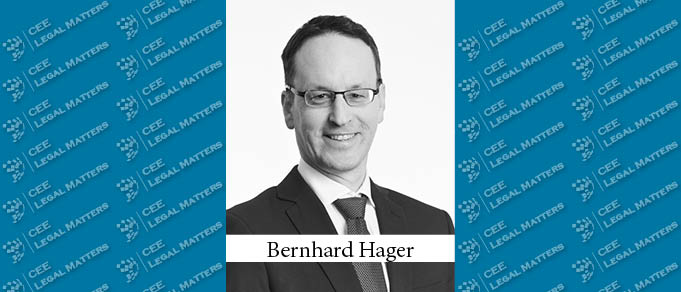CEE Legal Matters invited me to write about “lawyering in CEE.” My “lawyering” in the region started on January 2, 2000, when I was a young graduate working in Vienna for clients with business in the Czech Republic and Slovakia, and soon I was sent to Prague, and Bratislava. Over time, I witnessed not only economic booms and crises and political and economic transformations but also changes in the legal market and how law firms work.
In 2000, the quality of local Czech or Slovak law firms was not very convincing and quite old school. To be successful and to get international clients, it was enough to speak German or English and have good contacts, sometimes dating back to before 1989.
With the EU accession process and large privatizations underway, this was the perfect market for large international firms and young lawyers. Internationals opened their branches in downtown Prague and Bratislava and young local lawyers were working day and night for international fees on projects that, in Western jurisdictions, would normally be reserved for Senior Partners. This is how I came to arrive in 2000 to Bratislava as a graduate, yet worked with colleagues of my age on a huge bank privatization project. As an Austrian lawyer and German native speaker, my task was to redraft memos so that they would be “understandable, short, and less communistic,” as my boss described it.
After the privatizations and EU accession were concluded, many of the large international law firms left. However, their know-how stayed with the mentioned young local lawyers, who either took over the branches of the leaving firms or established their own firms and started providing first-class legal work for lower fees.
It is not only the ownership structure of law firms that underwent a significant transition but the legal society as a whole. In 2000, everybody knew and accepted that being a lawyer meant working day and night, but for reasonably good money. Juniors had a clear idea about their careers and their main aim was to be economically and financially secure. Nowadays, young students in Slovakia and the Czech Republic, like Gen Z or Alphas, tend to have different priorities. As a result, nowadays we offer agile working, work-life balance, multisport cards, language training, team building, etc., yet it is still difficult to attract young talent. That said, people are happy, the atmosphere in the firm is good, so I do not miss the old times.
Business life has become much more professional, and even mid-sized firms nowadays have compliance rules and apply them. A good lawyer now has to know the law, not the name of the judge. The judicial system itself improved significantly – especially the Czech one is now comparable to the Austrian system (Slovakia improved as well, but there is still plenty left to do). However, after the last general election in Slovakia, our main concern is keeping the status quo and not falling back by a few years.
After 2000, governments were quite eager to adopt big legal reforms and take examples from different countries. That time of big legal reforms seems to be over, however, there is a big influx of EU and international legislation. ESG, compliance, sanctions, cybersecurity, AML, AI, new banking rules, etc., are examples that already form a significant part of our legal work.
Even though business life and the legal world have become more professional and reliable, a certain disrespect for laws and contracts in Slovakia and the Czech Republic has not changed much over the last decades. When a new legislative piece appears, people immediately start brainstorming on how to circumvent it. If they sign a contract, they spend a lot of energy on finding a way to not perform it. In a contract according to English law, the parties agree on A and then deliver A. In a Slovak contract, the parties agree on A and, at the same time, they exclude B, C, D, and E, otherwise one party would come up with C. In order to avoid loopholes and to have every possible situation ruled in detail by contracts or laws, typical contracts and laws in this region are therefore very complicated, detailed, and casuistic. After 20 years of working in CEE, you are used to this but you still have the challenge of explaining such contractual or legal monsters to a client from a different jurisdiction.
In short, the legal landscape and legal market changed a lot in CEE. Nowadays it is comparable to the West in terms of quality, ethics, and work culture. We are also hunting for talent and strive to make them happy. Like anywhere else in the EU, CEE lawyers have to learn every day to be up to date with new legal developments like ESG, compliance, sanctions, cybersecurity, AI, and the like.
By Bernhard Hager, Managing Partner, Eversheds Sutherland Slovakia
This article was originally published in Issue 10.10 of the CEE Legal Matters Magazine. If you would like to receive a hard copy of the magazine, you can subscribe here.















